Firm Dynamics and Employment Outcomes
The group “Firm Dynamics and Employment Outcomes” analyses the foundation, evolution, and failure of firms, and subsequent consequences for individuals and regions. The group works on research questions around firm behaviour to explain recent phenomena such as business dynamism slowdown and wage inequality.
A central question to understand firm dynamism, mobility, innovation and the process of creative destruction is on the role of government interference. In this respect, the team analyses how connections of firms to politicians shape the business environment and to what extent firms benefit from having a political connection.
At the firm level, the group studies performance measures such as employment, sales, and market exit and investigates public procurement contracts, subsidies and political initiatives in terms of law proposals and draft laws that implicitly may generate higher entry barriers and distorts competition. This research will be informative for the overall economic environment and economic prosperity.
The way economies generate economic prosperity is central to our understanding of social mobility and welfare. Over the last three decades, Germany and the United States have shown similar productivity improvements. The way these improvements have been generated, however, differ remarkably. While startups in the United States are well-known for their innovation and radical advancements, the German business model relies to a large extent on established incumbent firms in the process of innovation and new technologies. The research group considers empirically and theoretically the role of entrepreneurship in this process and how it differs between Germany and the United States.
Understanding firm behaviour and the role of firms in our society contributes to the political and academic discussion on wage inequality and regional disparities. The sorting process of high productive workers into high productive firms has amplified over the last three decades with important implications for wages and aggregate inequality. Thus, the group examines the consequences of wage inequality between firms and to what extent selective mobility contributes to wage disparities.
The research group “Firm Dynamics and Employment Outcomes” further studies implications of innovative activities in the form of patenting on within-firm wage inequality. Examining impacts of new technologies and worker-level consequences will be informative about winners and losers in our society and informs policy makers on how to take action in terms of reskilling certain groups of the workforce.
The research group makes use of various administrative, survey and hand-collected data. The Establishment History Panel (BHP) provided by the Institute for Employment Research (IAB) and the Mannheim Enterprise Panel (MUP) provided by the Leibniz Centre for European Economic Research (ZEW) provide firm-level information on the performance of firms over time. At the individual level, IAB’s Integrated Employment Biographies (IEB) allows to study regional and wage mobility patterns of workers. European Patent Office data provide the basis for patenting activities. Web-scraped and survey data on political activities and opinions are exploited to study differential behaviour of politicians in parliament.
Workpackage 1: Business Dynamism, Firm Performance and Political Connections
Workpackage 2: Wage Inequality, Innovation and Firms
Workpackage 3: Shades of Capitalism: The Role of Entrepreneurship for Innovation and Business Dynamism in Germany and the United States
Research Cluster
Productivity and InstitutionsYour contact

- Department Structural Change and Productivity
EXTERNAL FUNDING
01.2020 ‐ 06.2024
The Rise of Populist Parties in Europe: The Dark Side of Globalization and Technological Change?
VolkswagenStiftung
Globalisation may have increased prosperity in general, but has also led to unemployment, wage inequality, outward migration and, thus, ageing populations in many European regions. This project examines whether these economic burdens lead to votes for populist parties.
01.2019 ‐ 06.2022
MICROPROD („Raising EU Productivity: Lessons from Improved Micro Data“)
Europäische Kommission
The goal of MICROPROD is to contribute to a greater understanding of the challenges brought about in Europe by the fourth industrial revolution and the associated ‘productivity puzzle’ in a context of globalisation and digitisation, and to provide alternative policy options to better address these challenges.
This project has received funding from the European Union’s Horizon 2020 research and innovation programme under grant agreement No 764810.
07.2018 ‐ 12.2020
Firm Wage Differentials in Imperfect Labour Markets: The Role of Market Power and Industrial Relations in Rent Splitting between Workers and Firms
German Research Foundation (DFG)
The main purpose of this proposal is to grasp a firmer understanding of how employment rents are split between workers and employers in imperfect labour markets and how labour market institutions, such as unions and works councils, influence the distribution of rents. In that it not only promises new insights into the wage formation process and the likely consequences of important labour market trends like falling unionisation and worker codetermination, but also promises to inform important public policy debates, such as which rights should be granted to organised labour.
02.2019 ‐ 09.2019
Evaluation of the IAB Establishment Panel 2018 and Preparation of a Results Report for West and East Germany
Final report: Fehlende Fachkräfte in Deutschland – Unterschiede in den Betrieben und mögliche Erklärungsfaktoren: Ergebnisse aus dem IAB-Betriebspanel 2018. IAB-Forschungsbericht 10/2019. (in German, English abstract available)
04.2016 ‐ 03.2019
Wage and Employment Effects of Bankruptcies
German Research Foundation (DFG)
The project analyzes the process and the consequences of firm failure. For the first time, evidence on the consequences of small firms’ bankruptcy on employees’ earnings and wages is provided. The project e.g. shows that employees of small firms are more likely to see their employer failing but, at the same time, face smaller earnings and wage losses than employees displaced from larger firms. Check the below research articles for further insights.
01.2018 ‐ 12.2018
Evaluation of the IAB Establishment Panel 2017 and Preparation of a Results Report for West and East Germany
Final report: Lohnunterschiede zwischen Betrieben in Ost- und Westdeutschland: Ausmaß und mögliche Erklärungsfaktoren. Ergebnisse aus dem IAB-Betriebspanel 2017. IAB-Forschungsbericht 6/2018. (in German, English abstract available)
01.2017 ‐ 09.2017
Evaluation of the IAB Establishment Panel 2016 and Preparation of a Results Report for West and East Germany
Final report: Produktivitätsunterschiede zwischen West- und Ostdeutschland und mögliche Erklärungsfaktoren. Ergebnisse aus dem IAB-Betriebspanel 2016. IAB-Forschungsbericht 16/2017. (in German, English abstract available)
Refereed Publications

Unions as Insurance: Workplace Unionization and Workers' Outcomes During COVID-19
in: Industrial Relations: A Journal of Economy and Society, No. 2, 2024
Abstract
We investigate to what extent workplace unionization protects workers from external shocks by preventing involuntary job separations. Using the COVID-19 pandemic as a plausibly exogenous shock hitting the whole economy, we compare workers who worked in unionized and non-unionized workplaces directly before the pandemic in a difference-in-differences framework. We find that unionized workers were substantially more likely to remain working for their pre-COVID employer and to be in employment. This greater employment stability was not traded off against lower working hours or labor income.

Preferred Field of Study and Academic Performance
in: Economics of Education Review, August 2023
Abstract
This paper investigates the impact of studying the first-choice university subject on dropout and switching field of study for a cohort of students in Germany. Using detailed survey data, and employing an instrumental variable strategy based on variation in the local field of study availability, we provide evidence that students who are not enrolled in their preferred field of study are more likely to change their field, delay graduation and drop out of university. The estimated impact on dropout is particularly strong among students of low socio-economic status and is likely to be driven by lower effort and motivation.
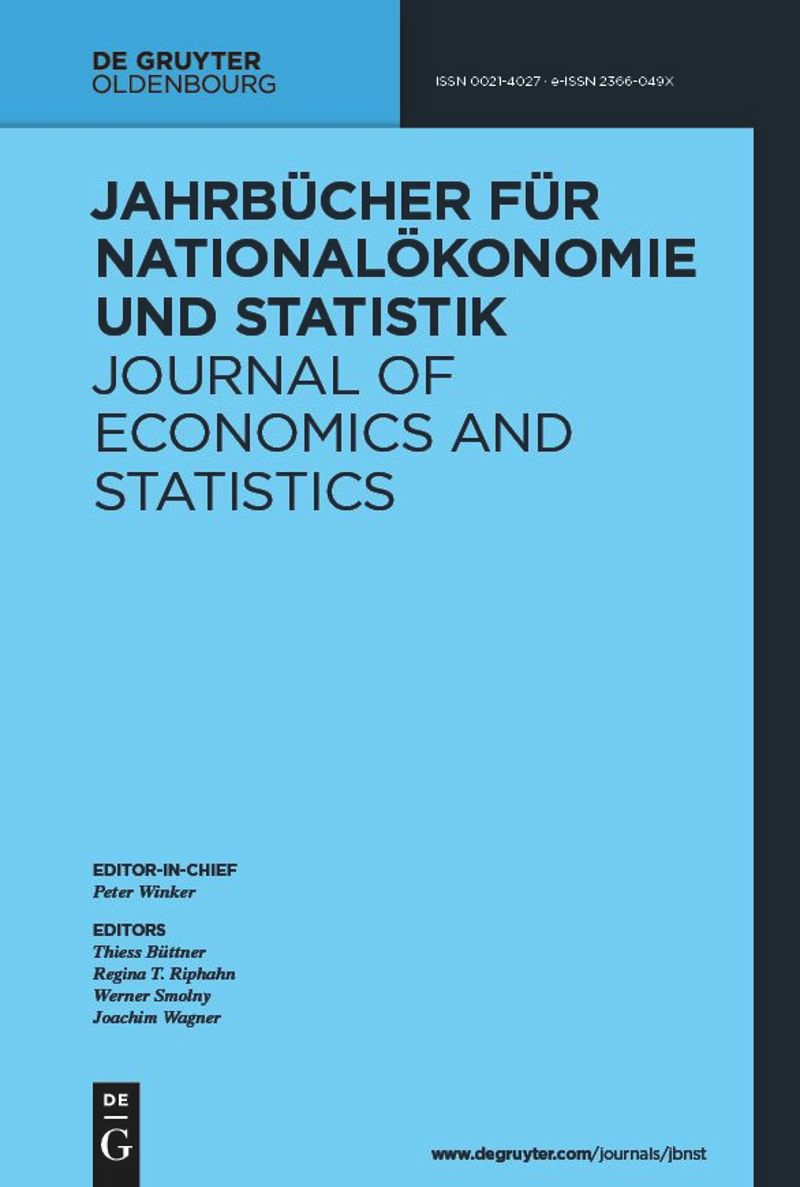
Micro Data on Robots from the IAB Establishment Panel
in: Jahrbücher für Nationalökonomie und Statistik, No. 3, 2023
Abstract
Micro-data on robots have been very sparse in Germany so far. Consequently, a dedicated section has been introduced in the IAB Establishment Panel 2019 that includes questions on the number and type of robots used. This article describes the background and development of the survey questions, provides information on the quality of the data, possible checks and steps of data preparation. The resulting data is aggregated on industry level and compared with the frequently used robot data by the International Federation of Robotics (IFR) which contains robot supplier information on aggregate robot stocks and deliveries.
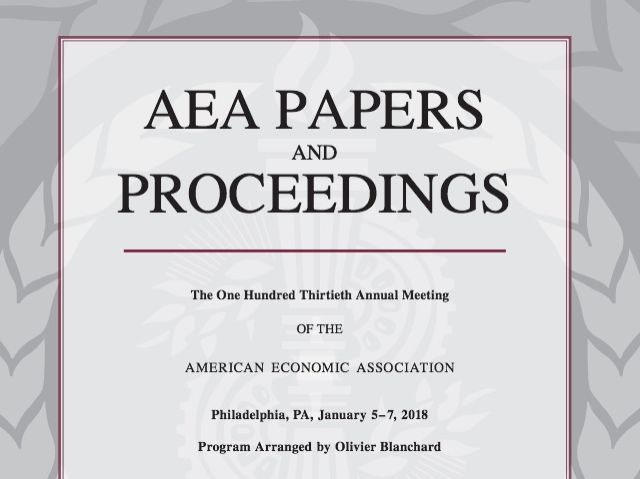
Robots and Female Employment in German Manufacturing
in: American Economic Association Papers and Proceedings, May 2023
Abstract
We analyze the impact of robot adoption on female employment. Our analysis is based on novel micro data on robot use by German manufacturing establishments linked with social security records. An event study analysis for robot adoption shows increased churning among female workers. Whereas hiring rises significantly at robot adoption, separations increase with a smaller magnitude one year later. Overall, employment effects are modestly positive and strongest for medium-qualified women. We find no adverse employment effects for female workers in any of our broad qualification groups.
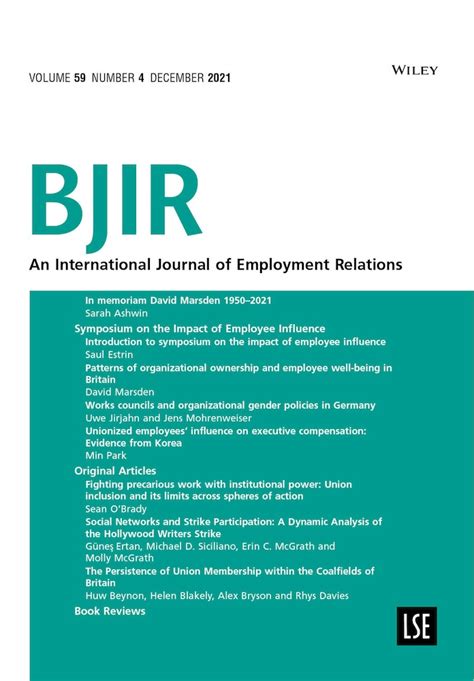
Uncovered Workers in Plants Covered by Collective Bargaining: Who Are They and How Do They Fare?
in: British Journal of Industrial Relations, No. 4, 2022
Abstract
Abstract In Germany, employers used to pay union members and non-members in a plant the same union wage in order to prevent workers from joining unions. Using recent administrative data, we investigate which workers in firms covered by collective bargaining agreements still individually benefit from these union agreements, which workers are not covered anymore and what this means for their wages. We show that about 9 per cent of workers in plants with collective agreements do not enjoy individual coverage (and thus the union wage) anymore. Econometric analyses with unconditional quantile regressions and firm-fixed-effects estimations demonstrate that not being individually covered by a collective agreement has serious wage implications for most workers. Low-wage non-union workers and those at low hierarchy levels particularly suffer since employers abstain from extending union wages to them in order to pay lower wages. This jeopardizes unions' goal of protecting all disadvantaged workers.
Working Papers
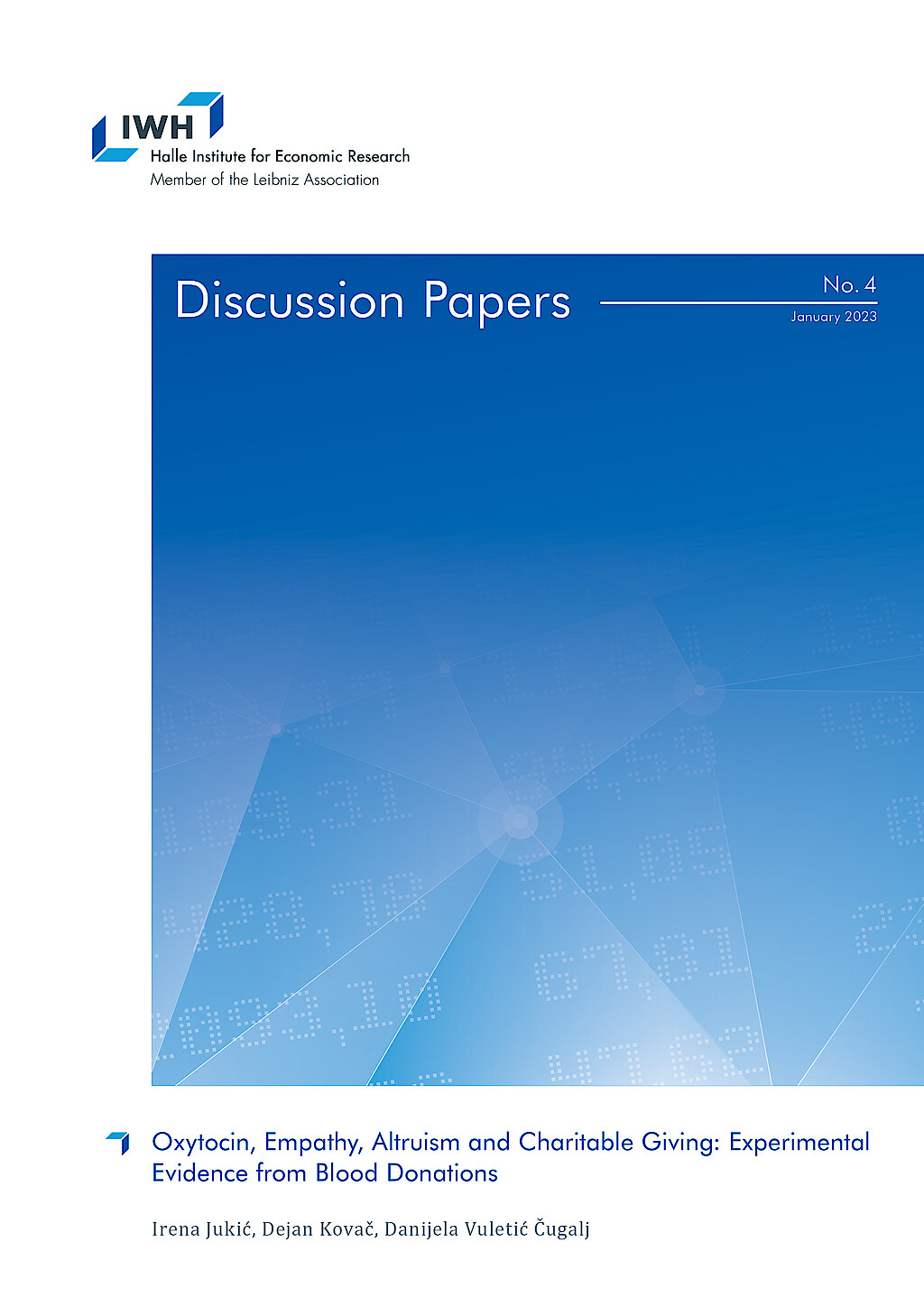
Oxytocin, Empathy, Altruism and Charitable Giving: Experimental Evidence from Blood Donations
in: IWH Discussion Papers, No. 4, 2023
Abstract
We conducted a field experiment in the natural setting of blood donations to test how oxytocin relates to empathy and altruism. We randomly assigned blood donors in the Croatian Institute for Transfusion Medicine to three groups with the aim to induce different levels of empathy by showing a neutral video to the donors from the control group and an emotional to the donors from the first and second treatment groups. In addition to watching the emotional video, donors from the second treatment group are given a gift which relates to the emotional story from the video. We find no effect of our treatment on induced levels of oxytocin. Null effects of our treatments could be explained by the above average baseline levels of oxytocin and inability of our treatments to provoke emotional stimuli in blood donors. Nonetheless, for our empathy measures we find the effect of gift exchange on empathic concerns, but not on perspective taking. After our experimental treatments, we followed the return of our blood donors for a whole year. We find that only variable which consistently predicts return for blood donation in stated period is the number of previous donations. From policy perspective it is an important finding. Especially for hospitals and other blood providers when faced with time and resource constraints.
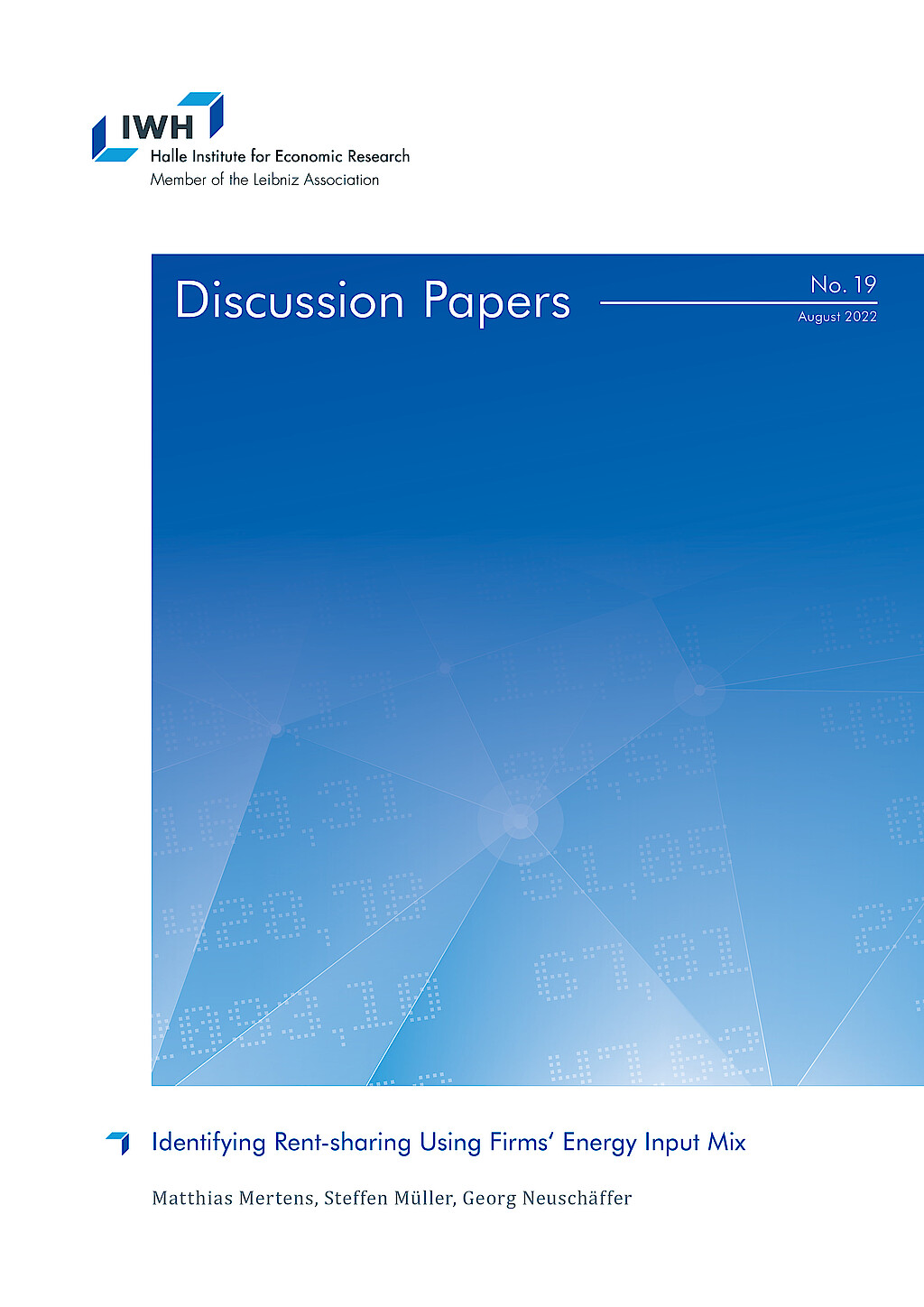
Identifying Rent-sharing Using Firms‘ Energy Input Mix
in: IWH Discussion Papers, No. 19, 2022
Abstract
We present causal evidence on the rent-sharing elasticity of German manufacturing firms. We develop a new firm-level Bartik instrument for firm rents that combines the firms‘ predetermined energy input mix with national energy carrier price changes. Reduced-form evidence shows that higher energy prices depress wages. Instrumental variable estimation yields a rent-sharing elasticity of approximately 0.20. Rent-sharing induced by energy price variation is asymmetric and driven by energy price increases, implying that workers do not benefit from energy price reductions but are harmed by price increases. The rent-sharing elasticity is substantially larger in small (0.26) than in large (0.17) firms.
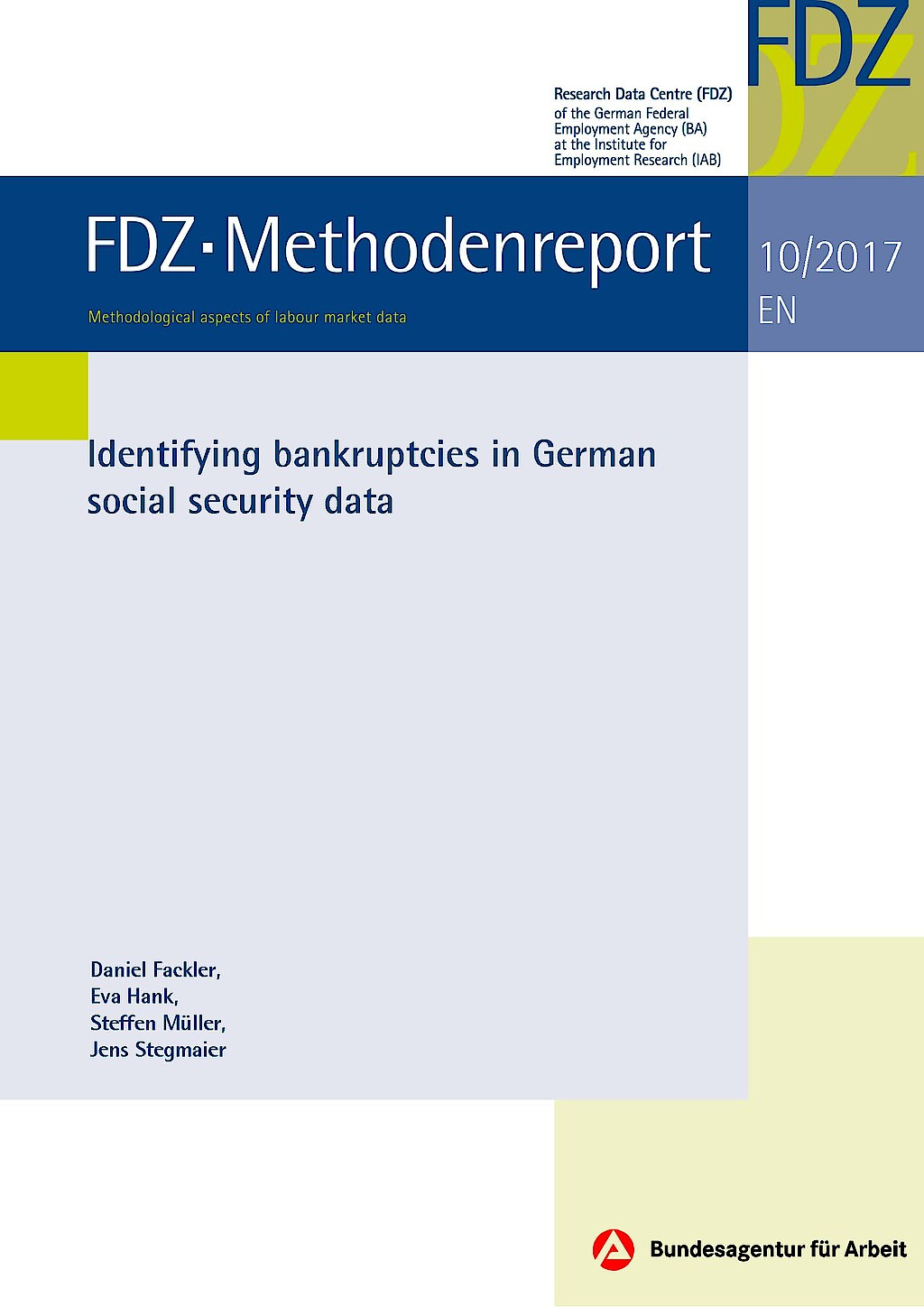
Identifying Bankruptcies in German Social Security Data
in: FDZ-Methodenreport, No. 10, 2017
Abstract
In empirischen Studien über Firmenschließungen wird häufig die Notwendigkeit betont, zwischen verschiedenen Arten von Schließungen, z.B. freiwilligen und unfreiwilligen, zu unterscheiden. Dieser Methodenreport erläutert vor diesem Hintergrund, wie im Betriebs-Historik-Panel (BHP) Betriebsstillegungen aufgrund von Insolvenzen identifiziert werden können. Insolvenzen können im Gegensatz zu anderen Schließungen eindeutig als Ausdruck ökonomischen Scheiterns und somit als unfreiwillige Schließungen interpretiert werden. (Autorenreferat, IAB-Doku)














